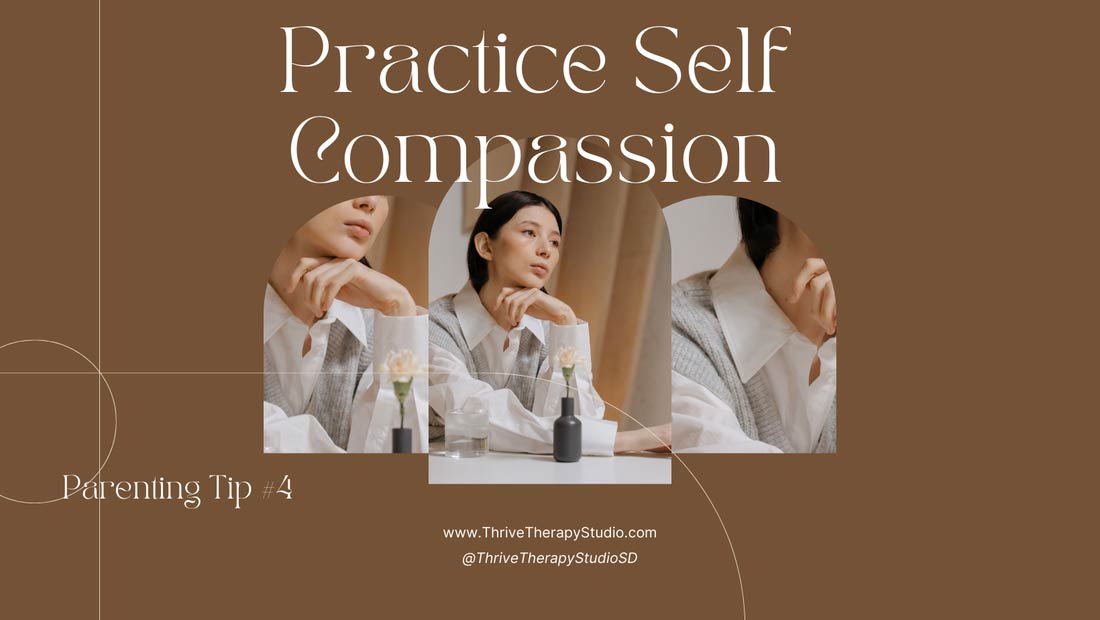In my office, we often discuss the impact of the way we think about ourselves or others, or even life in general, on our perception of those very things. For example, suppose we focus a lot on the difficult parts of parenting or our children and forget to notice the benefits of parenting and our children. In that case, we will naturally feel less satisfied, happy, and enjoyable overall in our families.
It’s interesting because underneath all of the toxic positivity statements, such as “choose happiness,” is a shred of truth. While we can’t always just easily choose happiness, we can work to shift our perspective in a situation from a more pessimistic view to a more neutral or, at times, optimistic outlook. And this will often also help someone feel more happy or content. So while I do not subscribe to “toxic positivity” cultural ideas around how someone’s life is entirely in their control, I do believe in the power of our thoughts and interpretation of our lives. And I believe that shifting our lens in very specific ways is enormously beneficial.
One of the key ingredients to shifting our perspective is to approach ourselves and others with compassion. Often, when parents are struggling with their children or with parenting in general, they are left with a shame spiral of also feeling that something is wrong with them to feel this way. They also might imagine that something is wrong with their child acting in the way they are.
Most of the time, neither of these things are true. Often, children are acting in ways that make sense, given their developmental level and current skills to navigate the world. For example, a child throwing a tantrum is most likely unable to communicate their needs or emotions in any other way. Similarly, the parent who reacts to the tantrum with yelling, is most likely feeling unable to react differently due to their own childhood experiences, parenting they received, ideas they have about how their child “should” be acting, internal distress at their child’s challenges, and sensory overload.
It is really tough to go through hard moments with your child. It is even harder to go through those moments and then spend hours, days, and weeks thinking about how you are a terrible parent and/or your child is incredibly damaged.
While having self-compassion and general compassion for your child will not necessarily change the tough moments right away, it can take the shame away afterward. And the good news is that when we can reduce shame, we are actually more likely to learn from our mistakes and approach the situation differently in the future.
Shame is an extremely triggering emotion for our nervous systems. As such, unfortunately, while we are in a deep state of shame, we are not likely to be able to learn or access the full range of ourselves that might be needed to solve a problem differently. Often, shame triggers our survival instincts or “fight, flight, freeze, fawn” responses, which are generally not helpful unless we are in a truly dangerous situation. Unfortunately, a screaming toddler is not actually dangerous!
Increasing our self-compassion can help us break this cycle of parenting shame by reducing our reactivity which also allows us to be more likely to parent in a way that feels helpful to us and our children.
Here are examples of ways to practice self-compassion in your parenting. These phrases are often helpful reminders in reaction to encounters with your child that do not go as you had hoped and might end up in tears (for one or both of you):
- I am a good parent doing the best that I can.
- Parenting is hard because it is hard, not because I am doing it wrong.
- I do not like how much I yelled at bedtime tonight. I probably need some more alone time so that I can manage my emotions better.
- There are no perfect parents; I am doing my best.
- There is nothing wrong with me or my child. We are doing the best that we can.
- I can try again tomorrow. What do I need for myself so that I can show up differently as a parent?
As parents, we will all make mistakes. We will all mess up and wish we could just start over again. Our children will also be imperfect and wish they could do things differently. The reason for this is not because something is wrong with us all but because we are human and we are flawed. We often learn experientially by doing rather than by thinking.
While we can’t change this part of life, we can change how we view it and develop a different way to handle ourselves after a mistake. And the good news is that the more we do this with ourselves, the more we can help our children do the same for themselves, and most likely, the more we will also interact with them and their mistakes differently. Again, this is a win-win and the gift that will keep giving. Try out incorporating self-compassion today by using the phrases listed above!
Read on next week for Parenting Tip #5: Assume positive intent and approach situations with curiosity
Reach out to start
your healing journey


